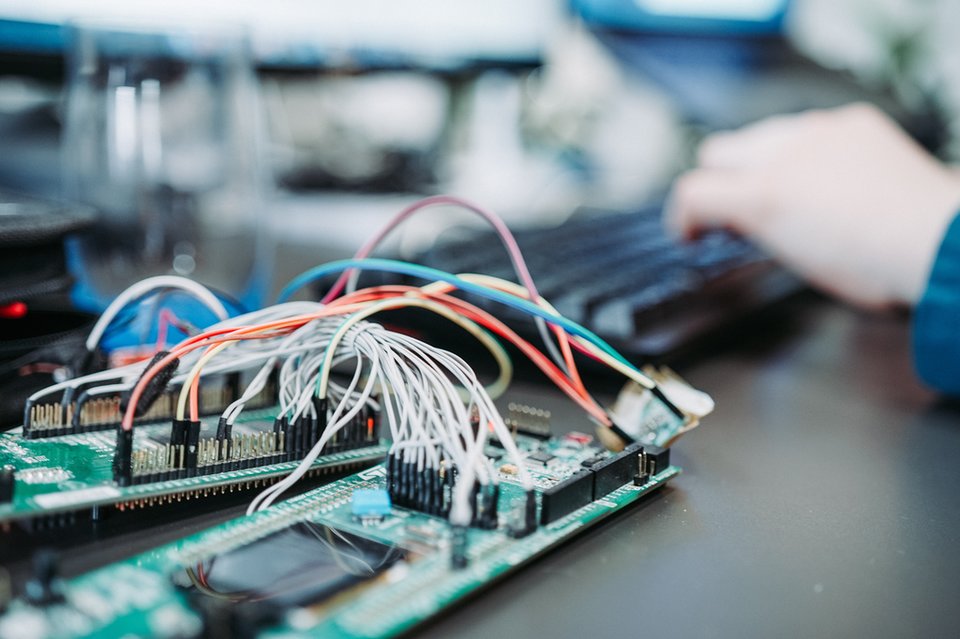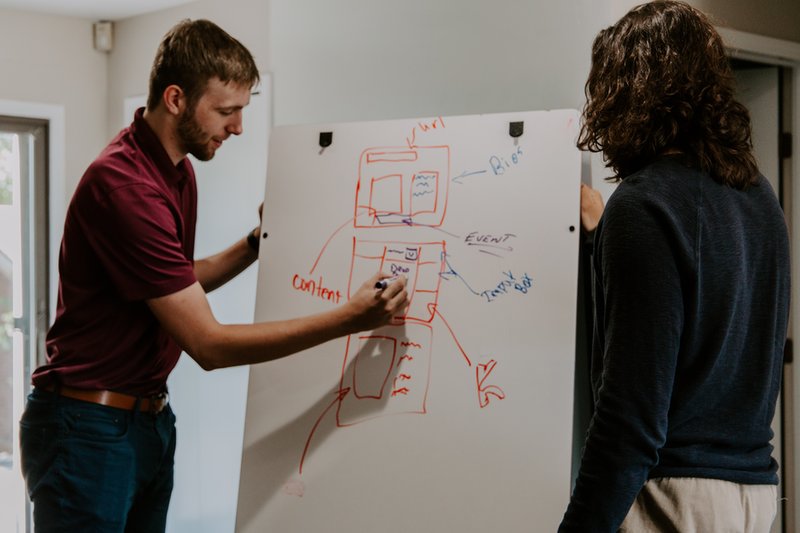Interview
Why data exchange is the backbone of future smart farming
A reflection on challenges and opportunities of data monetization in IoF2020

What does data monetization represent for you? Do you perceive it as a threat, or an opportunity?
In my opinion, direct data monetization will be difficult to implement as it would require to give a certain data point a specific price. However, the value of data points is very different from the perspective of various applications that are transforming them into insights or knowledge. While weather data is crucial to apply irrigation models, the weather data is also interesting for an app that reserves you a table in a restaurant. With direct data monetization, you would have to set a market price for a data point which might be affordable for some applications but at the time hinder innovation for applications that generate less financial return to afford the data usage. So in general, I think on the data level we should foster as far as possible open data access and interoperability financing only the pure costs of providing accurate data in a secure way. This model is already applied by DKE Agrirouter, where a service provider pays a fixed yearly fee to get access to data. In terms of monetization, I see far more potential in service monetization.
If you look at the business development point of view. Does this give possibilities of a new business model? What is the value of the collected data?
We tend to look at the data monetization from the wrong point of view when asking ourselves what our data is worth and how we can monetise it best. The truth is: your data is not worth much if not nothing just by itself. Services, algorithms and analytics need to be applied to the data, it needs to be visualised and then value might be created by more efficient processes, better decisions, or reduced risk. This actual value needs to be created by applications, to first of all earn money that then can be possibly redistributed to data generators. But here the rocky road does not end. Also the smart services are in many cases only creating a lot of value when they reach a critical mass of users, which is either very costly or takes a very long time, which are both very scarce resources in the field of innovative products especially in the agrifood sector. Therefore, we need to first put the infrastructure of platforms for data sharing and the distribution of smart services into place. We first need movers to provide app stores for certain agricultural sectors that open for any third-party solution, but with a strong data governance to protect data generators, providing their data to these services.
Is this a new form of business?
No, the data-driven economy has been around for years in other sectors and most dominating in the advertising field. Marketing budgets are nowadays spent on social media platforms and search engines, rather than television as you can aim your information very precisely to your target audience. In the end-consumer field, we see a similar development ongoing, building on both costumer knowledge (which is not restricted to data), and strong infrastructure of mobile devices and platforms for shopping, booking accommodation and offering mobility. This ecosystem, however, still lacks in the industrial sphere. This infrastructure needs to be built now in order to enable all the data-driven business models of the future.

How do you help IoF2020 use cases to take the right approach to data management?
In IoF2020, we formed a specific data exchange initiative that looks currently again into the modalities of data sharing of all IoF2020 use-cases with the ambitious aim to define a certain framework for data exchange in agrifood sector. In the course of this work we are supporting the use-cases with the latest insights of research on ethics in data sharing and of legal obligations and structures to implement trust between the data-exchanging parties. Furthermore, we encourage the use-cases and more specifically the companies behind them, to challenge their current business models and think about their role in an interconnected, mainly data-driven future agrifood industry. This requires new ways of thinking and completely new partnerships. We support this by matching companies that have complementary digital knowledge and combine them to transform the food value chain towards more sustainability, efficiency, and transparency.
How do the IoF2020 partners react to this idea?
Most companies in the agrifood industry have been around for years if not decades, some even for over 100 years. Therefore, it is natural that these actors are not always ready to accept and drive the rather disruptive changes that are requested by them. The new technological developments and opportunities are clashing with a culture of persistence, grown trust, and leadership that is rather inexperienced with the digital economy. Therefore, they often apply old patterns on the new situation that rather reduces the speed of innovation and avoids risks. However, this mentality is changing step-by-step, especially with projects like IoF2020. Here, companies find a safe haven to experiment and exchange their experiences, which helps a lot to overcome for example naturally grown aversities of competitors, and bring players together that didn’t even know one another’s existence nor the value they can bring to the market together. I would summarise that after a time of skepticism towards digitalisation in goods and services, we are experiencing a new spirit of pioneering and entrepreneurship and we are working every day to nurture this spirit as it will deliver us innovation and progress that we will keep our future economy competitive, as well as sutainable towards future generations.
What would you recommend to farmers?
At the moment, farmers are in a rather difficult situation, and we should acknowledge that. The market enforces price pressure on them, politics enforces costly sustainable regulations on them, they have access to only very little information and impact on the composition of market prices, and now the digital industry is coming around requesting them to implement digital technology and to go through an organisationsl and cultural shift in a record time. Truth is, that technology providers have to develop better services before they approach farmers with validated impacts and proven performance for the farmer. There is not much room for playing around for a farmer. The digital industry needs to show -and preferably rather soon- alternative distributions channels for farmers to show that with all the data on the high quality product, they can finally achieve a higher profit margin in the market.
We are kindly inviting pioneering farmers that are looking forward to the application of digital tools on their farms to support the validation and development of better solutions. Become part of initiatives like the European Digital Test Farm Network and offer part of your field and infrastructure to service providers developing the digital tools for the future of farming in return for an additional income source. Use the different offers of your cooperatives and initiatives like EIT Food, NEFERTITI and others, to educate yourself on the latest development and gain necessary skills for the future. Finally, I would like to see farmers get closer together with their end-consumers and to unite with a large civil force that is currently trying to transform our society towards more sustainability and a fair share of the profit for the people that are handling our nature every day and providing us with the most essential analogue ingredient to keep our very digital society running: food. Thank you for that. We are on your side.
- Alexander Berlin Leader of Business Support at IoF2020 & CEO of Berlin Thinking Consulting

Alexander Berlin
Leader of Business Support at IoF2020 & CEO of Berlin Thinking Consulting